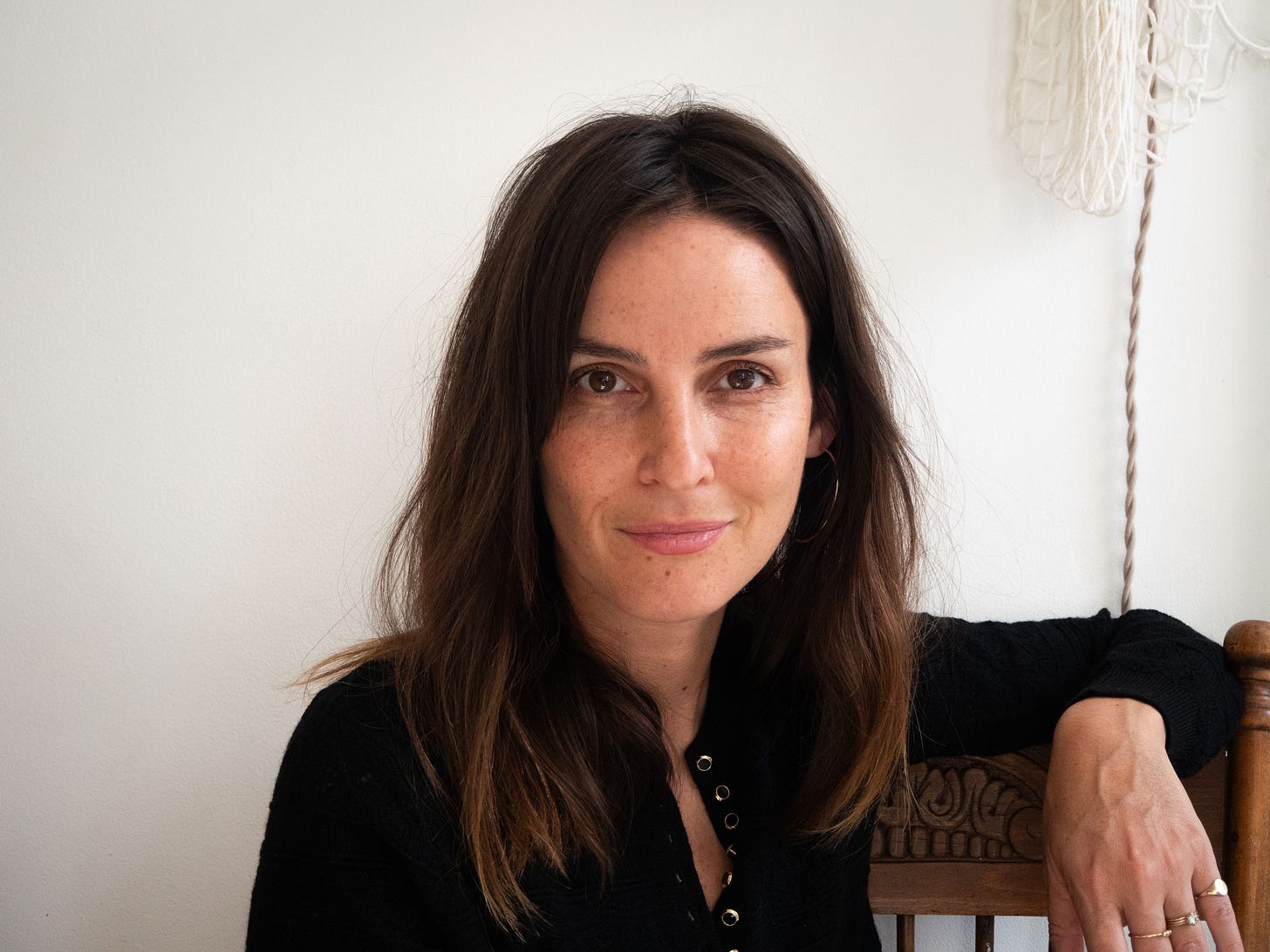greetings from your friendly slow-living minimalist underconsumption deinfluencer.
Who even am I anymore?
Yesterday morning I made a fresh batch of granola. I lit beeswax candles and read my four year-old books while oats and shredded coconut and almonds turned golden in our oven. #slowliving
I wrapped up an under-worn sweater and sent it off to someone who could use it. #minimalism
I pulled my kid—in a Buy Nothing helmet and head-to-toe hand-me-downs—on a sidewalk-found scooter. I wore re-soled clogs and old overalls given to me by a friend with an eight-year-old jacket. #underconsumptioncore
I told a friend never to buy a certain pair of underwear because good god, the gusset is the size of an embroidery thread and the resulting discomfort is actually astounding, no matter the rave reviews and influencer discount codes. #deinfluencer
As a person who makes most of her living online, there’s good reason for me to embrace these hashtags and monikers. While trying to please algorithmic gods in order to get the greatest number of eyeballs on particular pages of the internet, it can be useful—even necessary—to employ the vocabulary du jour. When James and I first moved to New York City, we set up our home in a tiny apartment. The timing of our move, and my subsequent online writing about it, corresponded with a Bloomberg-era effort to pass legislation on the size of new apartments. By the time the New York Post (LOL) caught wind of our humble abode and ran a story, we weren’t just two twenty-somethings trying to eke out a life in small space like millions of New Yorkers before us, we were micro-apartment dwellers. A few years later, when I was writing Simple Matters and making a case for living a life unburdened by too much stuff, I became a minimalist. In the ensuing years I’ve been called a slow-living advocate and a sustainable lifestyle expert. Over the years I’ve added and deleted these descriptions to my own work and others have used and stopped using them to describe me. No doubt lots of what I write about currently and share online would fall under the umbrella of underconsumption core were I to gather the energy to position myself that way.
In a hashtag and keyword driven world, there’s a real taxonomical advantage to classifying yourself on the internet. No doubt, if I hadn’t embraced the word minimalist and allowed every press outlet to describe me as one in 2016, I might never have sold a single copy of Simple Matters. More broadly, naming these trends and embracing these titles can help us to have a conversation. We see a cultural phenomenon unfolding and we find a common language for how to talk about it. We feel like we’re part of a movement and so we name it. But I wonder if when we repackage sustainable lifestyle choices with trendy names and hashtags if we ignore, or even prevent, deeper commitments to living firmly in our values? When we position these commitments as trends, which by definition pop up and disappear again, I think we overshadow and forget the continuity and the long-established practice of say, underconsuming that’s been at the root of countercultural movements for centuries.
Take monks or ascetics, the Amish, the Shakers, and that one very popular carpenter by the name of Jesus—a through-line among all of these folks is a disavowal of, or otherwise very particular relationship to, material goods. I can’t help feeling that there could be some value in seeing the connectedness of these choices, not just to one particular moment or trend, but to the experience of human beings across time and place. Under a dozen different names, centuries of people have been compelled to live simply; to carve out a path that is unconventional in a world that idolizes material goods. While the noise of internet trendsetters gets dissected and scrutinized in popular media, the quiet, personal endeavors of so many can get lost in the conversation. Worse, suggesting that folks making discerning, intentional choices about the goods they bring into—or leave out of—their home are merely part of a current micro-trend elides a much richer, probably more interesting, story.
Monks making herbal tinctures and denouncing worldly goods in the Middle Ages didn’t have a rapidly warming planet as the backdrop of their monastery gardens, but their simple, honest work did stand in stark contrast to the gilded halls of the papacy. I’m not suggesting we all fetch our hair shirts from our streamlined capsule wardrobes and repent for our use of trending hashtags, but I do think there’s value in acknowledging the longstanding tradition of the attempting to live sustainably in a culture that’s long been anything but.
Now, please excuse me while I lace up my dirty sneakers and pull on my patched jeans. I’ve got an underconsumption core video to film.





Funny how everything timeless, at some point, is “on trend”. No shame in embracing this ageless wisdom! Sans hashtags or with. Mahalo for sharing your reflections! Aloha from Honolulu 💝
Hi Erin! Would you mind sharing what platform you sell your clothes on ? :)